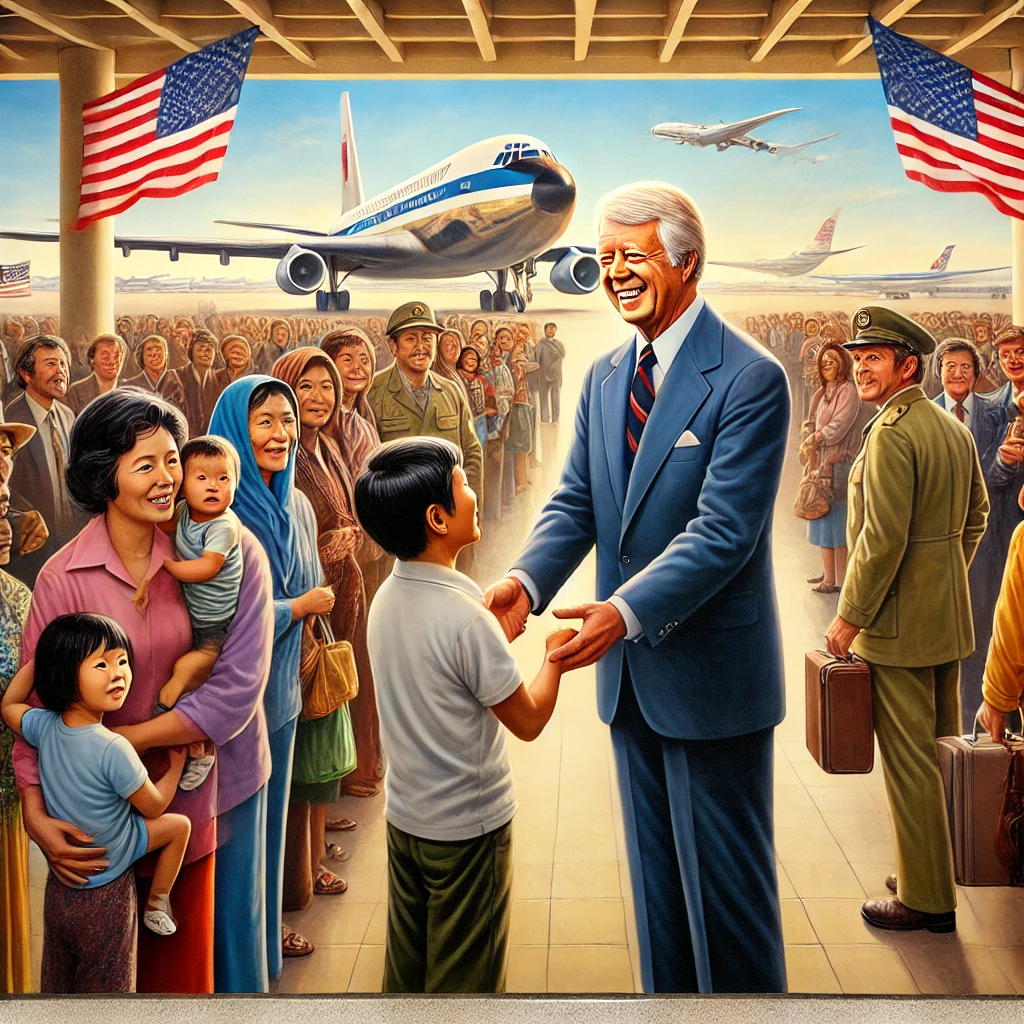President Jimmy Carter played a significant role in supporting immigrants, particularly Vietnamese refugees, during his presidency from 1977 to 1981. His administration addressed the growing crisis of Southeast Asian refugees following the Vietnam War, including those fleeing the fall of Saigon in 1975 and subsequent conflicts in the region. Here’s an overview of his contributions:
1. Expanded Refugee Resettlement Efforts
- President Carter significantly expanded the U.S. refugee resettlement program to accommodate the influx of Southeast Asian refugees, including Vietnamese “boat people.”
- In 1980, Carter signed the Refugee Act of 1980, which established a comprehensive framework for the admission and resettlement of refugees into the United States. The law standardized refugee admissions and services, aligning U.S. policy with international agreements.
- The Refugee Act increased the annual refugee ceiling and allowed for emergency provisions to admit larger numbers of refugees during crises.
2. Support for Vietnamese “Boat People”
- The term “boat people” refers to Vietnamese refugees who fled their homeland by sea in overcrowded and dangerous conditions. Many were escaping persecution, poverty, and the aftermath of the Vietnam War.
- Carter’s administration worked with international organizations and other countries to coordinate rescue efforts and resettlement. The U.S. Navy and Coast Guard were sometimes involved in rescuing refugees stranded at sea.
- The administration welcomed tens of thousands of Vietnamese refugees into the United States, partnering with churches, nonprofits, and local communities to facilitate their resettlement.
3. Involvement in International Coordination
- Carter played a role in fostering international cooperation on refugee issues. In 1979, he participated in the United Nations’ Geneva Conference on Indochinese Refugees, encouraging other nations to share the burden of resettling refugees from Vietnam, Laos, and Cambodia.
- He advocated for humanitarian assistance for refugees in camps throughout Southeast Asia and sought to reduce the burden on countries like Thailand and Malaysia, which were overwhelmed by the influx.
4. Promoting Community Sponsorship
- Carter’s administration promoted a private sponsorship model to support refugee resettlement. Many Vietnamese families were resettled through partnerships with American families, churches, and community organizations.
- This grassroots approach helped Vietnamese refugees integrate into American society and provided a network of support for their new lives in the U.S.
5. Humanitarian Advocacy
- Carter emphasized the moral and ethical responsibility of the United States to support those fleeing oppression. He framed the acceptance of refugees as a reflection of American values, focusing on compassion and human rights.
- His administration worked to ensure that refugees received resources for housing, education, and employment training.
Legacy:
President Carter’s policies provided a pathway for tens of thousands of Vietnamese refugees to rebuild their lives in the United States. Many of these refugees and their descendants have gone on to thrive, contributing significantly to American society in various fields such as business, education, and public service.
Carter’s leadership during the refugee crisis remains a cornerstone of his legacy, highlighting his commitment to human rights and international cooperation. His work laid the foundation for the integration of Vietnamese and other Southeast Asian communities into the United States, fostering a vibrant and resilient immigrant population.

